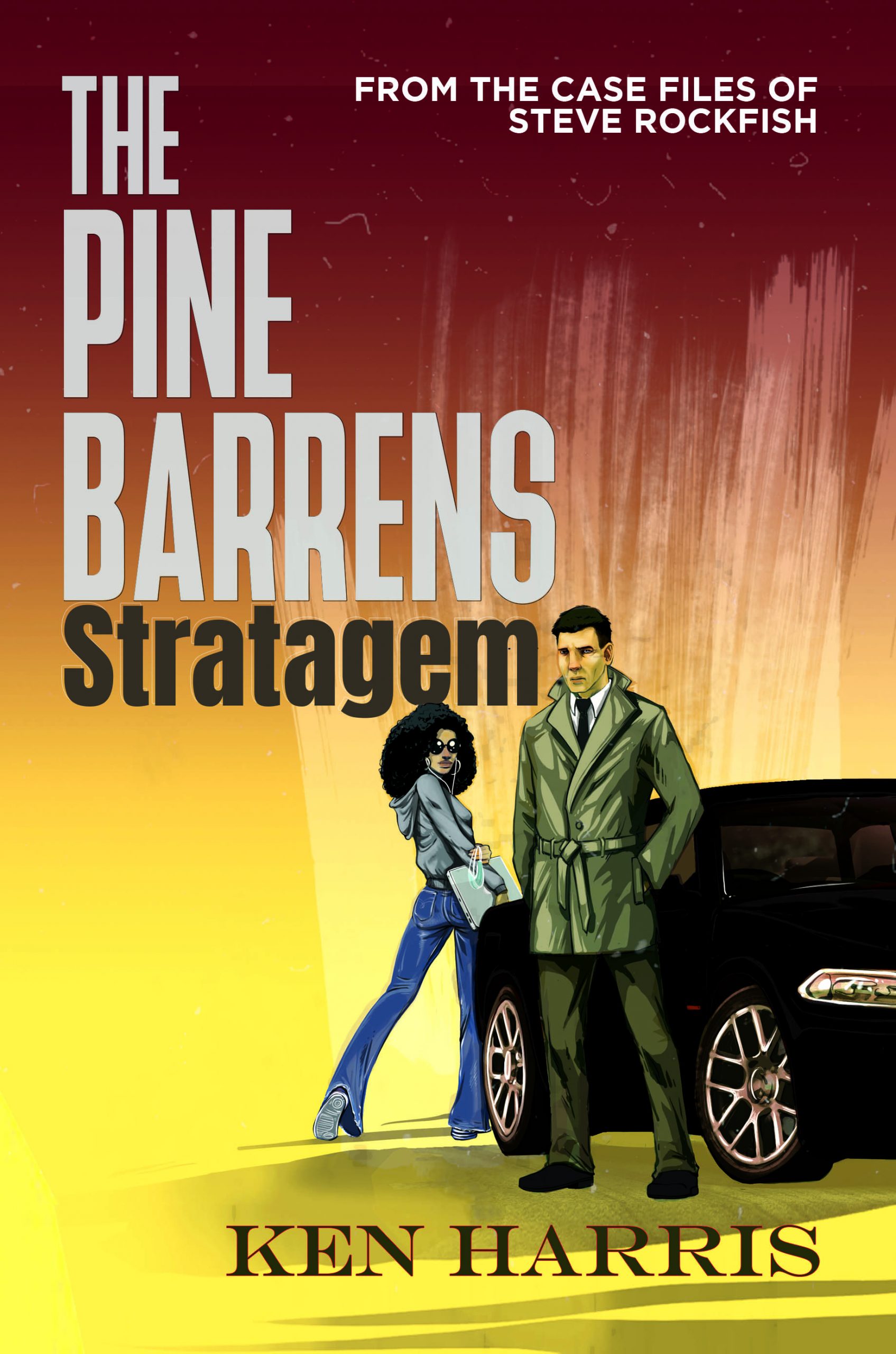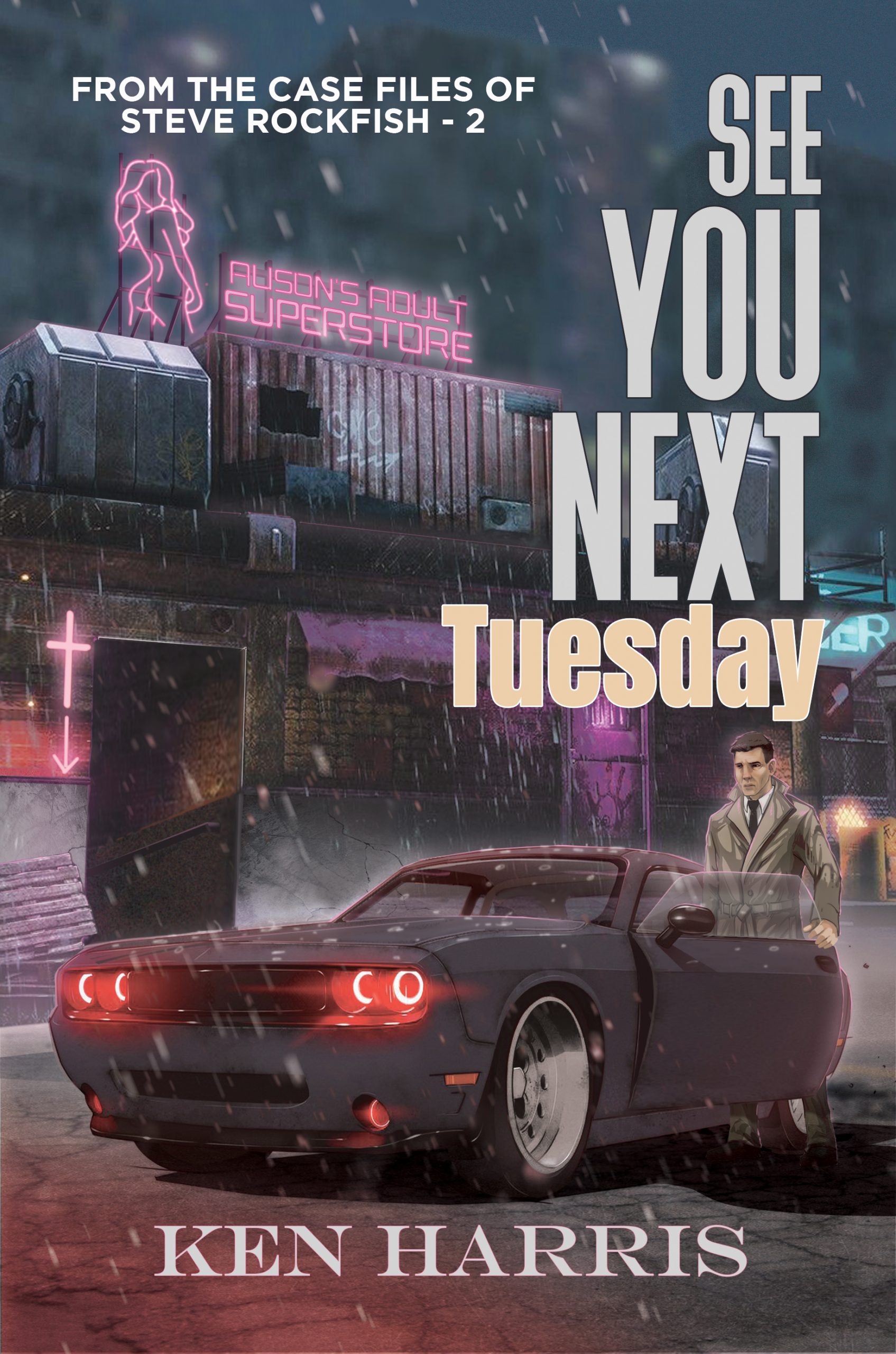YOU WILL KNOW ME BY MY DEEDS
by Mike Cobb
February 24 - March 21, 2025 Virtual Book Tour
Synopsis:

Billy Tarwater thought he had left the troubled past behind, until a series of ominous incidents threaten to destroy everything he and his wife hold dear.
Someone is out to get them, and he is determined to uncover the truth before it’s too late. But as he delves deeper into the mystery, he realizes that the dark forces at play may be connected to the events of seventeen years ago.
And to the Atlanta Child Murders.
Join him on a heart-pounding journey of suspense and intrigue as he navigates the dangerous waters of his past and fights to protect the ones he loves.
In a race against an unknown enemy, Billy must confront his darkest fears. Will he be able to uncover the truth before it’s too late, or will he and his wife become victims of the sinister forces at play?
Praise for You Will Know Me by My Deeds:
"Mike Cobb’s You Will Know Me by My Deeds is a taut, propulsive tale set against the harrowing backdrop of the 1980’s Atlanta Child Murders. Entertainingly addictive and menacing."
~ Robert Gwaltney, award-winning author of The Cicada Tree and Georgia Author of the Year
"Mike Cobb's Atlanta-based historical fiction easily holds its place on the bookshelf next to Caleb Carr’s Alienist novels."
~ Joey Madia, author of Sherlock Holmes and the Mystery of M and the Stanton Chronicles historical fiction series
"Mike Cobb’s enthralling and meticulously-researched mystery, You Will Know Me by My Deeds, sets a lofty standard for contemporary thrillers. Set in the heart of the ‘new’ south, Cobb’s vividly-wrought tale propels his readers through the tumult of an era and illuminates race relations at a difficult moment in Atlanta’s modern history. Grab this book for a satisfying and uplifting read."
~ Steve Klein, Civil Rights Activist
"I couldn’t put this book down and had to finish it in one sitting! Once again Mike Cobb has crafted a plausible story with strong characters, a sense of place, and rich historical detail regarding a tragic chapter of my beloved Atlanta’s history – the missing and murdered children from 1979 to 1981."
~ Lisa Land Cooper, Author and Historian
"Mike Cobb’s prose is powerful, and his plot is dark, complex and full of surprises. You will find a rich, earthy view of old Atlanta complete with all its beauty, weaknesses and the diverse attitudes of the Old South."
~ Jeff Shaw, author of Who I Am; The Man Behind the Badge and Lieutenant Trufant
"A bracing historical thriller that further enriches this top-notch series."
~ Kirkus Reviews
"This is an excellent book with an engaging mystery and an intriguing conclusion. It’s clear that research is paramount to Mike Cobb’s writing. I could really identify with how he wove true crimes into this fictional one. I look forward to reading more from him."
~ Ed Begley Jr., Award-winning actor, producer, environmental activist, and author of To the Temple of Tranquility…and Step On It!: A Memoir
You Will Know Me by My Deeds Trailer:
Book Details:
Genre: Historical Crime Fiction
Published by: Waterside Production
Publication Date: January 2025
Number of Pages: 444
ISBN: 978-1962984720
Series: Sequel to The Devil You Knew
Book Links: Amazon | Barnes & Noble | Goodreads
Read an excerpt:
Chapter One
Cynthia Tarwater
Monday, December 14th, 1981
Two blurred headlights, ragged halos in the rearview, broke the Stygian pitch.
Cynthia gripped the steering wheel so hard her knuckles blanched.
The rain cascaded down the windshield in gelid sheets. The wiper blades thwacked the edge of the Suburban’s cowl like a metronome.
For the past twenty-four hours, Atlanta had been beset by a heavy downfall and scant visibility.
She struggled to make out the road ahead.
For the first five minutes of the drive, Billy Jr. and Addie had jabbered away in the back seat like sugar-high Energizer Bunnies. Then they sank into oblivion. Just like that, she thought. Nothing like a weekend sleepover at Grandma Alice’s to wear the kids out.
She stopped at the intersection of Flat Shoals and Glenwood. The barbershop to her left was long gone, a victim of white flight, its plate glass windows boarded up with fly-posted plywood. She could almost hear the snip snip of Mr. Batson’s clippers beckoning from yore. The snap of Sam Jepperson’s shoeshine cloth beseeching a generous tip. The redolence of Bay Rum and Kiwi polish. Not that she ever got her hair cut—or her shoes shined—there. But her father Cecil dragged her along on more than one occasion with the promise that they’d go next door for a vanilla shake if only she’d sit like a “good girl” and watch him get trimmed. She had often wondered whether he did things like that just to piss her off. His way of controlling. Or did he really want her company?
The car that had been following her since she pulled out of Billy’s mother’s driveway lingered half a block behind. When the light changed, she turned left onto Glenwood. She looked in the mirror. The car turned left and kept its distance. Probably nothing.
At the Gresham Avenue intersection, she glanced over at what had been Harry’s Army Surplus. Now, like the barbershop, just another padlocked casualty.
A long-suppressed memory welled up. Saturday, September 28th, 1963. She was thirteen. So capricious and carefree, like most girls her age. She left the East Atlanta Pharmacy by the front door and headed west toward Moreland Avenue. Just past Harry’s, she looked back and saw a car following her. When she stopped, it stopped. When she went, it went.
That had been her last recollection from before the erasure—what she later came to know by its medical name. Localized psychogenic amnesia. For seventeen years, the next thing she had remembered was waking up at Grady Hospital with an officer standing guard outside her door. The nurse had said You’re not Cynthia now. You’re Patti. With an i. Or something to that effect. She would later learn that the police had contrived the alias to protect her from her abductor.
It wasn’t until October a year ago that everything began coming back to Cynthia in a torrent. What had been an eradication of five weeks of her past, leaving in its wake a deep, dark abyss, had begun to come back in a matter of days. This wouldn’t have happened without Billy’s help. And his dogged determination.
Did she welcome the recovered memory? There were times when she wondered whether knowing was better than incognizance. Closure would feel right. But knowledge alone doesn’t bring closure.
And could closure ever come for the families of the girls who didn’t survive? Why had she made it out alive, and the others hadn’t?
She inched her way down Glenwood past Moreland Avenue. At the Boulevard intersection, she glanced across the street at Fire Station No. 10. A half dozen firemen were huddled under the overhang in front of the station. For a moment, she thought she saw Billy’s brother Chester standing there smoking a cigarette and chatting up the others. But Chester hadn’t lasted a year as a fireman before bugging out for the merchant marines, thinking he could avoid the draft. He ended up on the SS Mayaguez ferrying supplies through combat zones in Vietnam. Came home intact but with a chip on his shoulder.
She turned right.
She drove up Boulevard past Memorial Drive, hugging the eastern edge of Oakland Cemetery before assuming a northwesterly course past the shuttered Fulton Cotton Mill and through the railroad underpass.
She looked back. The car continued to follow her. That’s when she realized that it wasn’t nothing.
Perhaps she should have taken the expressway. But she had chosen not to. Visibility was bad enough on the surface roads.
As she neared the intersection with Ponce de Leon, the light turned yellow. She accelerated and took a hard left, hoping the car would stop on red. It didn’t. When she turned right on Peachtree, then left on Fifth, the driver continued to dog her.
Cynthia eased into The Belmont courtyard. The other car stopped briefly at the turn-in then crept down Fifth. She craned her neck, trying to get a good look at it. At the driver. But she could see little through the relentless downpour and the fogged windshield.
She parked the Suburban at The Belmont entrance. She waited for the rain to abate enough for her to get the kids inside without a drenching. Then she hurried them into the lobby under her flimsy throwaway umbrella made for one.
She closed the umbrella and hooked it on her wrist. She held Billy Jr. and Addie’s hands tight, lest they slip on the marble floor.
They crossed the threshold into the elevator cab, leaving a trail of dripping water behind. She punched 4.
When the doors opened, Billy was standing in the fourth-floor vestibule. He was in his light beige mackintosh and floppy yellow rain hat.
“Clairvoyant, are we?” Cynthia said.
“I saw you out the window and was on my way down to help. But you beat me to it.” He placed his hand on her upper arm. “Cynthia, you’re trembling.”
“It’s just the biting cold. I’m fine. I need to get these rug rats out of their wet clothes and into their PJs. And then sit for a while. You can park the car if you don’t mind.”
“Of course I don’t mind. That’s the least I can do.”
She held out the umbrella. “Want this?”
“No thanks.” He knelt in front of Billy Jr. and Addie. “How’s Grandma?”
“Feisty as ever,” Cynthia answered. “She sure knows how to cut a look. But the kids adore her, and that’s what matters most. And compared to my mother…let’s just say you’re the lucky one and leave it at that.”
When Billy returned, Cynthia was already curled up in her favorite overstuffed chair with a glass of Merlot. Her socks and Clarks slip-ons lay pell-mell on the floor about her. The open umbrella stood atilt in the corner of the room.
“That was quick,” he said.
She took a sip. Notes of black cherry, of vanilla and sandalwood, teased her throat. “I’m sure the kids are deep into sugar-plum dreams by now. Grab a pour and join me. There’s something you need to know.”
Billy, glass in hand, plopped into the chair beside her. “What is it?”
“I need to tell you about a flashback I had. And about a car.”
He listened as Cynthia told him about the car that had followed her from his mother’s house. “Could you tell what kind it was?” he asked.
“I couldn’t tell a thing, Billy.” She ran her finger along the chair’s piping, tracing in her mind the path she had taken. “All I know is it looked big. Maybe a sedan.”
“I don’t think you should be out late at night by yourself, Cynthia. It seems like every day more shit happens. Carjackings. Murders.”
“At least Wayne Williams is locked up.” She searched her thoughts. “Those poor children. And their grieving families.”
Billy’s hesitation baffled her. He just sat there for a minute without saying a word. He finally spoke. “Tell me about the flashback.”
“The whole thing with the kidnapping came rushing back tonight. It hit me hard, just as I passed the old army surplus. I guess it was my being right there where my thirteen-year-old self had been lured away.” She held her glass in the air. “More, please.”
He refilled it and topped his off. He set the bottle on the side table, leaned over, and took her hand. “I’m so sorry, Cynthia.”
“It wasn’t what I expected. I thought I had finally put it all behind me, with Kilgallon…excuse me, the Reverend Kilgallon…dead and Sam Jepperson exonerated and freed. But now I’m not so certain. Maybe it’ll haunt me forever.”
“I hope not. I just wish there was something I could do to make things better.”
“I’ll be okay.”
“Are you sure?”
“I’m sure. Life goes on, doesn’t it? And I don’t believe I have a choice in the matter.”
***
Excerpt from You Will Know Me by My Deeds by Mike Cobb. Copyright 2025 by Mike Cobb. Reproduced with permission from Mike Cobb. All rights reserved.
Author Bio:

Mike’s body of literary work includes both fiction and nonfiction, short-form and long-form, as well as articles and blogs. He is the author of three published novels, Dead Beckoning, The Devil You Knew, and its sequel You Will Know Me by My Deeds. His fourth novel, Muzzle the Black Dog, a novella, is scheduled for release in May 2025. He is also working on Kathleen, a fictionalized account of a cold case murder from 1970.
While he is comfortable playing across a broad range of topics, much of his focus is on true crime, crime fiction, and historical fiction. Rigorous research is foundational to his writing. He gets that honestly, having spent much of his professional career as a scientist.
A native of Atlanta, Mike splits his time between Midtown Atlanta and Blue Ridge, Georgia.
Catch Up With Mike Cobb:
www.MikeCobbWriter.com
Amazon Author Profile
Goodreads
BookBub - @cobbmg1
Instagram - @cobbmg
YouTube - @mikecobbwriter
X - @mgcobb
Facebook - @MGCobbWriter
LinkedIn - @mgcobb
Tour Participants:
Visit these other great hosts on this tour for more great reviews, interviews, guest posts, and opportunities to WIN in the giveaway!Click here to view the Tour Schedule
ENTER FOR A CHANCE TO WIN:
This is a giveaway hosted by Partners in Crime Tours for Mike Cobb. See the widget for entry terms and conditions. Void where prohibited.
Can't see the giveaway? Click Here!

























